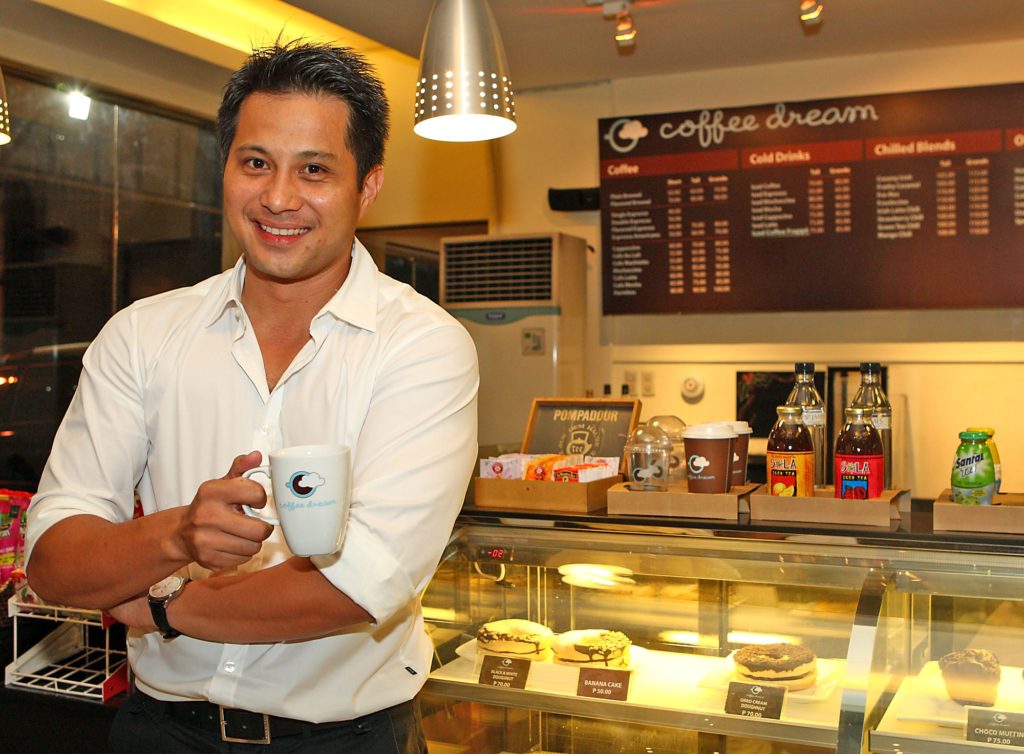
SOCO/NOV 22,2010: Businessman Glenn Anthony Soco, president anf founder Coffee Dream in his Gorordo branch.(CDN PHOTO/TONEE DESPOJO)
With the rising number of companies adopting inclusive business (IB) models in the Philippines, a study jointly conducted by public and private proponents pointed out the need for further collaboration to create a more enabling environment for this concept to thrive.
The study, undertaken by the Philippine Board of Investments (BOI) and the United Nations Development Programme (UNDP) Istanbul International Center for Private Sector in Development (IICPSD), highlighted the growing enthusiasm and interest of the Philippine private sector in adopting IB models.
“The study highlights the needed synergy between the government and the private sector in creating an enabling environment for Inclusive Business,” Trade Undersecretary and BOI Managing Head Ceferino Rodolfo said in a statement.
Recommendations
Among the recommendations for increased IB adoption include raising awareness, building capacity, encouraging collaboration, and initiating certain policy interventions to create a more inclusive and more business-friendly environment.
IB not only offers opportunities for profit generation but also helps those at the base of the economic pyramid and aids in the reduction of poverty in the country.
IB-tize businesses
Rodolfo said that the BOI’s inclusion of Inclusive Business in the 2017-2019 Investment Priorities Plan builds on the study’s recommendation to create more policies supporting IB.
“This further gives the government a proactive role to ‘IB-tize’ businesses to spread the benefits of growth to the poor,” he added.
Dubbed Business+ Philippines, the study provides valuable insights on the level of inclusiveness among Philippine companies today.
It presents the results of a baseline survey among Philippine companies to understand their current levels of awareness, knowledge, and engagement in IB, as well as identifies challenges and opportunities in adopting these models for their operations.
Business+study
The Business+study, done in partnership with the country’s most prominent business associations, involved 223 companies in the Philippines.
While the report showed that the current levels of awareness and engagement of Philippine companies in IB are low, it also highlighted the strong interest among respondents in adopting and strengthening these practices within their companies.
IB MODELS
According to the BOI, there are already a number of emerging IB models in agriculture, tourism, health, and education, but many of these companies were not even aware that they were already implementing IB practices.
Social enterprises showed the highest levels of inclusiveness with the highest scores in all entry points, followed by large national companies, multinational corporations, as well as small and medium enterprises (SMEs).
Based on the definition in the G20 Inclusive Business Framework, there are six entry points on IB including being an employee, consumer or customer, supplier, distribution channel member, entrepreneur, or local community.
The study also stressed that IB has the widest impact on the agribusiness sector as it helps farmers increase their profitability and productivity.
In the Philippines, agribusiness serves as source of income for 55 percent of Filipinos, but communities who belong in this sector remain as the country’s most vulnerable.
Coffee Dream
One local example of an IB model is the Glenn Soco-owned Coffee Dream, which sources its coffee beans from farmers in the town of Tuburan in northwest Cebu.
At present, Tuburan can produce 500 kilograms of coffee beans every month, some of which are also shipped to a roasting company in Cavite.
Soco, who also sits as the current president of the Mandaue Chamber of Commerce and Industry (MCCI), earlier said his company is committed to help the farming communities in Tuburan.
“Every cup of coffee ordered is one step to helping out our local farmers and the industry,” he had said.